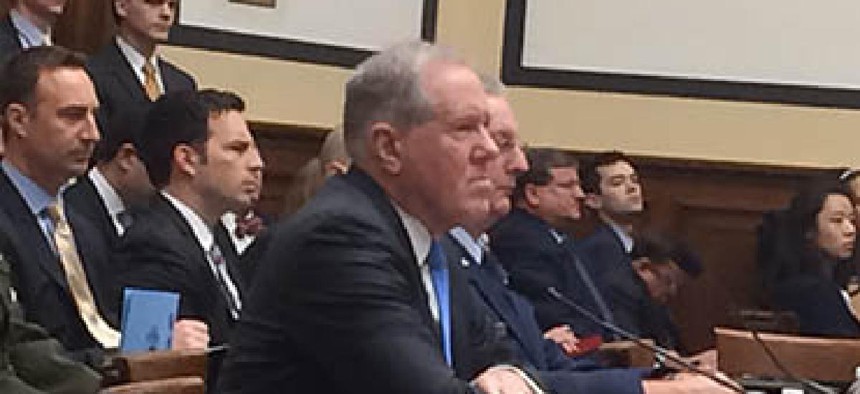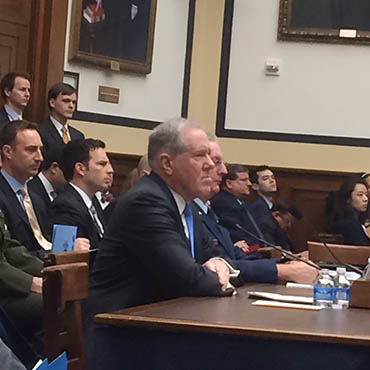Pentagon submits acquisition reform ideas to Congress

DOD sees acquisition overhaul as a key element in maintaining the country's technological edge.

DOD's Frank Kendall told Congress that "the rules our program managers must follow are still too complicated and burdensome."
The Pentagon's top acquisition official submitted legislative proposals to the House Armed Services Committee on Jan. 28 aimed at simplifying what practitioners and observers say is an overly complex acquisition process.
The hearing was the opening salvo in a debate the 114th Congress is likely to have over how to halt erosion of the United States' advantage in defense technology relative to its adversaries.
The legislative suggestions include reducing documentation, clarifying the role of Milestone Decision Authorities, simplifying rules for supporting an acquisition program throughout its life cycle, and defining the roles of two Pentagon offices in overseeing business systems.
The proposals came from Frank Kendall, undersecretary of Defense for acquisition, technology and logistics, who warned the committee about the potential for the Defense Department's bureaucracy to slow the deployment of technology to meet new threats.
In managing an acquisition contract, "the rules our program managers must follow are still too complicated and burdensome," he said. "We need the flexibility to tailor our contracts consistent with all of the various types of situations that we face."
The proposals are part of a much broader initiative Kendall is leading to make an often byzantine acquisition process more responsive to the Pentagon's weapons and IT needs. In September, he unveiled a draft of Better Buying Power 3.0, which seeks to keep acquisition costs down by fostering more competition. A spokesperson for Kendall said the final version of that guidance will be issued in mid-February.
BBP 3.0 overlaps with congressional efforts to reform the acquisition process. New House Armed Services Chairman Mac Thornberry (R-Texas) takes a long view of acquisition reform and said he hopes the annual defense authorization bills can incrementally make the process more agile.
"This is not a one-shot deal," Thornberry told reporters after the hearing. "We're going to keep after it and after it and after it because we have to do better."
He also said he plans to have his committee release its own acquisition proposals in March and solicit feedback from industry associations. "This is too complex to think that we understand all of the consequences of what we suggest," he added.
Thornberry and Kendall have been collaborating on the issue for some time. In an interview last May, Thornberry told FCW that Kendall had shown a willingness to work closely with lawmakers on acquisition reform. "This is not something that can just be imposed from Congress," he said at the time. "It has to be a joint effort, and [Kendall has] been good at that."
The two men showed signs of being in agreement at the Jan. 28 hearing. Thornberry nodded when Kendall told the committee that the Pentagon must get better at taking calculated risks to acquire cutting-edge technology.
NEXT STORY: GSA unveils prices-paid tool for Alliant


